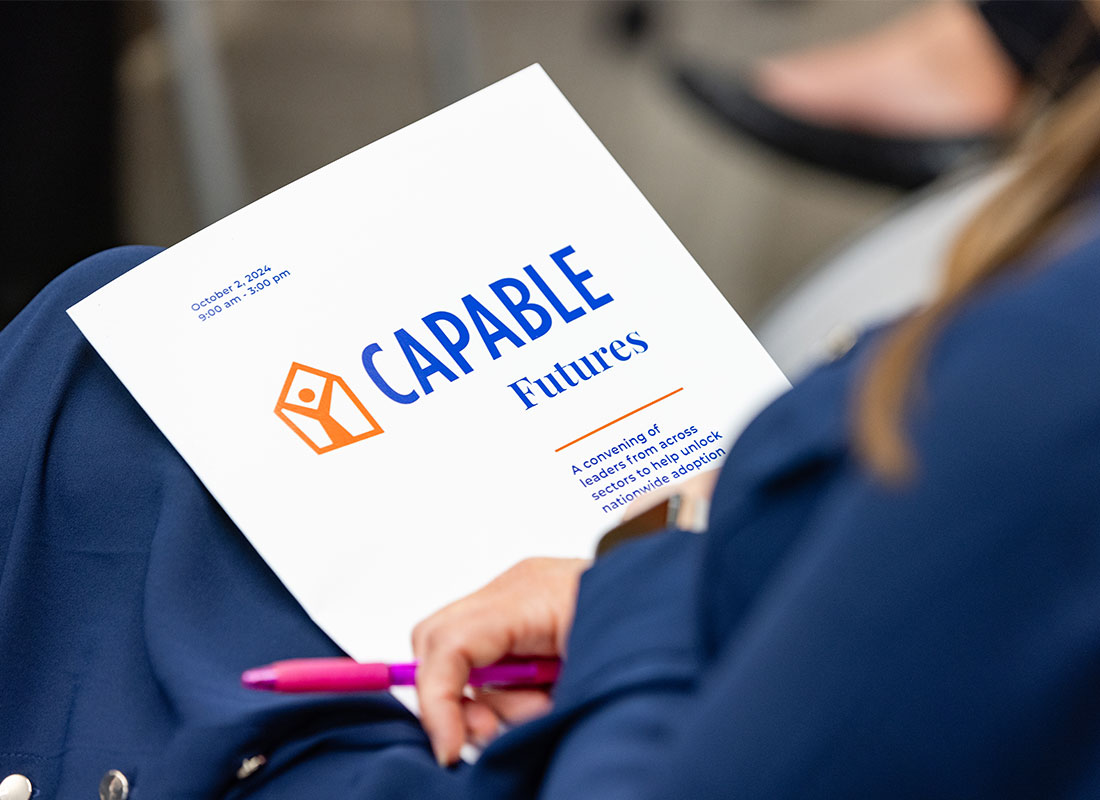For 15 years, CAPABLE triads of nurses, occupational therapists, and handy workers have collaborated with older adults to enable them to age with dignity within their communities. The Johns Hopkins School of Nursing recently hosted CAPABLE Futures, a convening that gathered leaders from health, policy, and social sectors to advance the program’s nationwide adoption. Together, attendees tackled the challenge of breaking down policy barriers and defining a clear path to expand CAPABLE across the U.S.
The day started with an introduction from Rita and Alex Hillman Foundation Executive Director Ahrin Mishan, who discussed policy framing. He was followed by CAPABLE co-creator Dean Sarah Szanton, and then two panels of policy experts.
Shifting Paradigms
The first panel, Shifting Paradigms, included national policy experts Dawn Alley, PhD, Sarah Ruiz, PhD, Mark Atalla, PharmD, and Jenny Zhang, MD. Moderated by Arielle Richardson, another policy expert and member of the Johns Hopkins School of Nursing National Advisory Board, this panel examined CAPABLE’s core principles, strategies for scalability, and unique value in health care. Despite challenges like data access and fragmented funding, panelists highlighted CAPABLE’s financial benefits, adaptability, and potential for integration into broader care models. The program’s impact on quality of life is profound, empowering patients to live more independently, preventing falls, and reducing costly hospitalizations.
Dr. Jenny Zhang currently works at the Center for Medicare and Medicaid Innovation but had patients experience CAPABLE when she was their primary care doctor. She shared one patient’s experience: “His goal was to walk his large dog without falling. The occupational therapist got a special leash, helped train the dog not to pull, and now the dog is a source of exercise and meaning rather than a fall risk.”
Transformative Actions
The Transformative Actions panel featured Amanda Goodenow, Karin Stewart, and Deborah Paone, and was moderated by Maryland Secretary of Aging Carmel Roques. CAPABLE now operates in over 40 locations across 23 states and internationally in Sydney, Australia, and Nova Scotia, Canada. Panelists discussed effective strategies that have been implemented at these diverse sites. CAPABLE is more than a service; it’s a movement toward healthier, more independent aging, embodying a philosophy of “meeting people where they are.”
“CAPABLE taps into the magic of people’s own goals rather than the goals providers set for them, and it’s transformative,” Dr. Sarah Szanton says.
The future of CAPABLE is promising, yet success will require overcoming funding limitations, policy gaps, and cultural barriers. Moving forward, CAPABLE’s advocates are committed to working with states, leveraging federal policy changes, and fostering partnerships to ensure older adults in every community can experience the dignity and security of aging in community.
